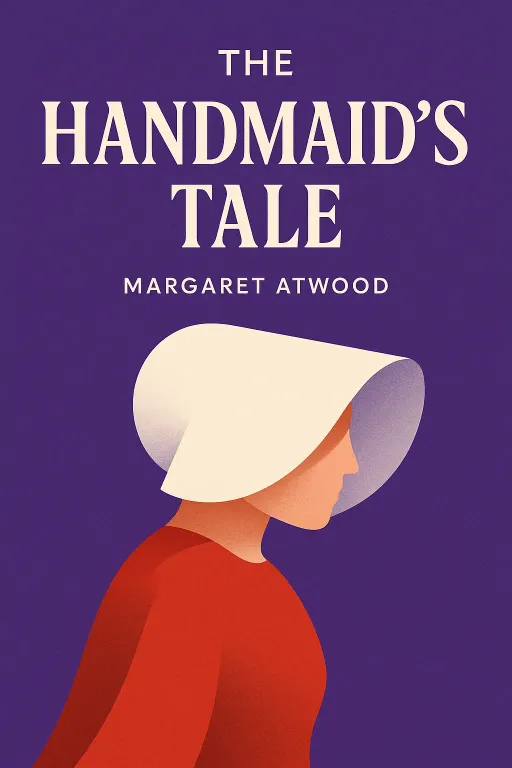
Great Expectations
11 minIntroduction
Narrator: What if the life you were building, the future you were promised, was a lie? Imagine being plucked from a life of poverty and obscurity, told you have "great expectations," and set on a path to become a gentleman of wealth and status. You assume your mysterious benefactor is a wealthy, eccentric recluse, and you shape your entire identity around this belief—shedding old friends, adopting new manners, and falling in love with a woman you believe you are destined to marry. Then, one stormy night, a coarse, weathered stranger appears at your door and reveals a terrifying truth: he, a hunted criminal, is the source of your fortune. Everything you have become is built on the sacrifice of a man from the very world you sought to escape. This profound moral crisis is the central question explored in Charles Dickens's masterpiece, Great Expectations. The novel charts the journey of its young protagonist, Pip, as he navigates the treacherous waters of social class, ambition, and guilt, ultimately forcing him to confront what it truly means to be a gentleman.
The Chains of Guilt and Gratitude
Key Insight 1
Narrator: The novel establishes early on that Pip's life is irrevocably shaped by a single, terrifying encounter that binds him with chains of guilt and fear. As a young, orphaned boy visiting his parents' graves in a bleak churchyard, Pip is ambushed by an escaped convict. This man, ragged and shackled with a great iron on his leg, is desperate and dangerous. In a moment of pure terror, he grabs Pip, turns him upside down to empty his pockets, and threatens to cut his throat and eat his heart and liver if he doesn't bring him "wittles" and a file to saw through his leg iron.
This encounter becomes the defining moment of Pip's childhood. The convict's threat is not just physical; it's a moral one. To obey, Pip must steal from his own home, from the very people who raised him—his harsh sister, Mrs. Joe, and her kind-hearted blacksmith husband, Joe Gargery. The act of stealing a pork pie and brandy from the pantry fills Pip with a profound sense of guilt that haunts him. When he secretly delivers the items to the convict on the misty marshes the next morning, he is not just acting out of fear, but also a nascent sense of pity for the shivering, ravenous man. This single act of coerced kindness creates a secret bond, a debt that Pip doesn't understand but will follow him for the rest of his life. It is the first link in a chain of events that will determine his fortune and force him to question the very nature of right and wrong.
The Poison of Social Aspiration
Key Insight 2
Narrator: Soon after his encounter with the convict, Pip's life takes another dramatic turn when he is summoned to Satis House, the decaying mansion of the wealthy and eccentric Miss Havisham. Here, he is introduced to a world of stagnant opulence and psychological cruelty. Miss Havisham, a spectral figure in a rotting wedding dress, has stopped all the clocks in her house at the exact moment she was jilted at the altar decades ago. She lives in a state of perpetual twilight, nursing her bitterness.
More importantly, Pip meets Estella, Miss Havisham's beautiful and proud adopted daughter. Estella becomes the instrument of Miss Havisham's revenge on the male sex, and she immediately targets Pip. During a game of cards, she mocks his "coarse hands" and "thick boots," calling him a common laboring-boy. Her scorn inflicts a deep wound, planting a seed of shame and dissatisfaction in Pip's mind. For the first time, he is acutely aware of his social inferiority. He returns home miserable, no longer content with his life at the forge with Joe. Estella's cruelty becomes the catalyst for his "great expectations." His ambition is born not from a noble desire for self-improvement, but from a desperate need to become a gentleman worthy of a girl who was raised to have no heart. Satis House and its inhabitants poison his contentment, replacing it with a restless longing for a life he believes is superior.
The Illusion of the Gentleman
Key Insight 3
Narrator: Years later, while apprenticed to Joe, Pip's vague aspirations are given stunning form. A London lawyer, Mr. Jaggers, arrives to announce that Pip has come into a great fortune from an anonymous benefactor. He is to be taken to London and educated as a gentleman. Pip immediately assumes that his benefactor is Miss Havisham, and that he is being groomed to marry Estella. This assumption fuels a dramatic shift in his character.
As Pip prepares to leave for London, his newfound status creates a painful rift between him and his oldest friend, Joe. He becomes a snob, embarrassed by Joe's simple manners and uneducated speech. This is painfully illustrated when Joe later visits him in London. Dressed in his uncomfortable Sunday best, Joe is awkward and out of place in Pip's sophisticated chambers. He addresses Pip as "sir" and directs his conversation to Pip's roommate, Herbert, unable to bridge the social chasm that has opened between them. Pip, in turn, is mortified by Joe's presence, wishing he had never come. Joe, with his simple wisdom, recognizes the divide. He tells Pip that he is "wrong in these clothes" and wrong out of the forge, and that they should not be seen together in London. This heartbreaking scene reveals the corrosive effect of Pip's expectations, as he sacrifices the genuine love of his truest friend for the superficial trappings of a gentleman's life.
The Shattering of Expectations
Key Insight 4
Narrator: The central illusion of Pip's life is shattered on a dark and stormy night when he is twenty-three years old. A rough, aged stranger appears at his London apartment. After a tense and confusing conversation, the man reveals his true identity: he is Abel Magwitch, the very convict Pip helped on the marshes so many years ago. And then comes the devastating blow—Magwitch, not Miss Havisham, is his secret benefactor.
Pip is horrified. His entire identity as a gentleman, his dreams of marrying Estella, and his social standing were all built on the toil of a transported criminal. Magwitch, sentenced to life in Australia, had dedicated himself to making a fortune, all for the sake of the boy who showed him a small kindness. He risked death by returning to England just to see the gentleman he had created. Pip's reaction is one of pure revulsion. He is repulsed by Magwitch's coarse manners and his criminal past, and he is deeply ashamed that his fortune is tainted by such a source. The dream he had cherished for years collapses in an instant, replaced by a nightmare of danger and moral disgust. Miss Havisham had no part in his fortune; she had simply used him as a plaything for Estella. Pip's "great expectations" are revealed to be a cruel irony, forcing him to confront the ugly truth behind his gilded life.
Redemption Through Loyalty
Key Insight 5
Narrator: The revelation of Magwitch's identity marks the beginning of Pip's true moral education. His initial disgust slowly transforms into a profound sense of duty and, eventually, genuine affection. He learns that Magwitch is being hunted by his old enemy, Compeyson, and that his life is in constant danger. With the help of his friend Herbert, Pip devises a plan to smuggle Magwitch out of England.
Their escape attempt down the Thames River is a tense and dramatic climax. Just as they are about to reach a foreign steamer, they are intercepted by a police boat. Compeyson is with them. In the ensuing struggle, Compeyson drowns and Magwitch is captured, severely injured. All of his fortune is forfeited to the Crown. In this moment, with all his wealth and status gone, Pip's transformation is complete. He no longer feels any revulsion for Magwitch. He sees only a man who sacrificed everything for him. Pip remains steadfastly by Magwitch's side through his trial and illness, holding his hand as he dies in the prison infirmary. Just before Magwitch passes, Pip whispers to him that his daughter—a child he thought was lost forever—is alive, beautiful, and a lady he loves. This final act of loyalty provides peace for Magwitch and solidifies Pip's redemption. He has learned that a person's worth is not measured by wealth or social standing, but by love, loyalty, and compassion.
Conclusion
Narrator: The single most important takeaway from Great Expectations is the profound difference between being a "gentleman" in the eyes of society and being a "gentle man" in one's heart. Pip's journey is a painful, humbling education in this distinction. He spends years chasing a superficial ideal, believing that money, clothes, and connections will bring him happiness and the love of Estella. He achieves this status, only to discover it was a hollow illusion built on a foundation he despised. It is only when he loses everything—his fortune, his social standing, and his romantic dreams—that he finds his true self. His redemption comes not from wealth, but from his unwavering loyalty to the convict Magwitch and his reconciliation with the simple, honest love of Joe.
The book leaves us with a challenging question about our own ambitions. In our pursuit of success and status, what true treasures are we in danger of leaving behind? Dickens reminds us that the greatest expectations we can have are not for wealth or position, but for the capacity to love, to forgive, and to remain loyal to those who have shown us kindness, regardless of their station in life.









